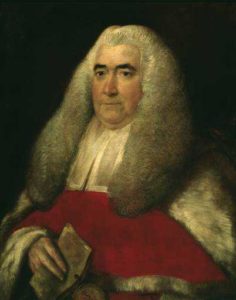
FINDLAY, Ohio — One of the nation’s most conspicuous professing atheist activist organizations has sent a letter to the clerk of the Findlay, Ohio municipal court to claim that a displayed mural referencing Psalm 91 violates the U.S. Constitution.
The Wisconsin-based Freedom From Religion Foundation (FFRF) says that it was contacted by a “concerned citizen,” who advised that a large mural in the courthouse features artwork of an eagle and the phrase, “Under His wings shall you find refuge—Psalms 91.”
“The Establishment Clause in the First Amendment to the U.S. Constitution prohibits government sponsorship of religious messages,” wrote FFRF Legal Director Rebecca Markert.
“It is inappropriate for the county to display this religious message on the wall of the Findlay Municipal Court because it conveys government support for religion,” she asserted. “A reasonable observer would view the text as an endorsement of religion by Findlay. The mural calls for viewers to seek refuge in the Christian God.”
The letter further contended that the display makes those who are not Christian feel like outsiders.
“The municipal court serves all citizens regardless of belief or nonbelief, and with this display, Findlay appears to be preaching to citizens required to come to the courthouse,” Markert stated. “The messages alienates the 24% of American adults who are nonreligious. It excludes non-Christian residents of Findlay and expresses a preference for the Christian faith in a government building responsible for administering and upholding our laws.”
The FFRF has requested that the mural consequently be removed. Read the letter in full here.
It is not yet known whether clerk David Spridgeon plans to respond.
As previously reported, for over 100 years in early America, those in the legal profession often looked to British judge William Blackstone’s “Commentaries on the Laws of England,” which regularly pointed to Scripture—particularly the Torah—as the foundation for the law.

“Considering the Creator only as a being of infinite power, He was able unquestionably to have prescribed whatever laws He pleased to His creature, man …, ” Blackstone wrote in 1753. “But as He is also a being of infinite wisdom, He has laid down only such laws as were founded in those relations of justice, that existed in the nature of things antecedent to any positive precept. These are the eternal, immutable laws of good and evil, to which the Creator Himself in all His dispensations conforms; and which He has enabled human reason to discover, so far as they are necessary for the conduct of human actions.”
“Such among others are these principles: that we should live honestly, should hurt nobody, and should render to everyone its due; to which three general precepts Justinian has reduced the whole doctrine of law,” he stated.
“If man were to live in a state of nature, unconnected with other individuals, there would be no occasion for any other laws, than the law of nature and the law of God. Neither could any other law possibly exist, for a law always supposes some superior who is to make it; and in a state of nature we are all equal, without any other superior but Him who is the Author of our being.”
Become a Christian News Network Supporter...


